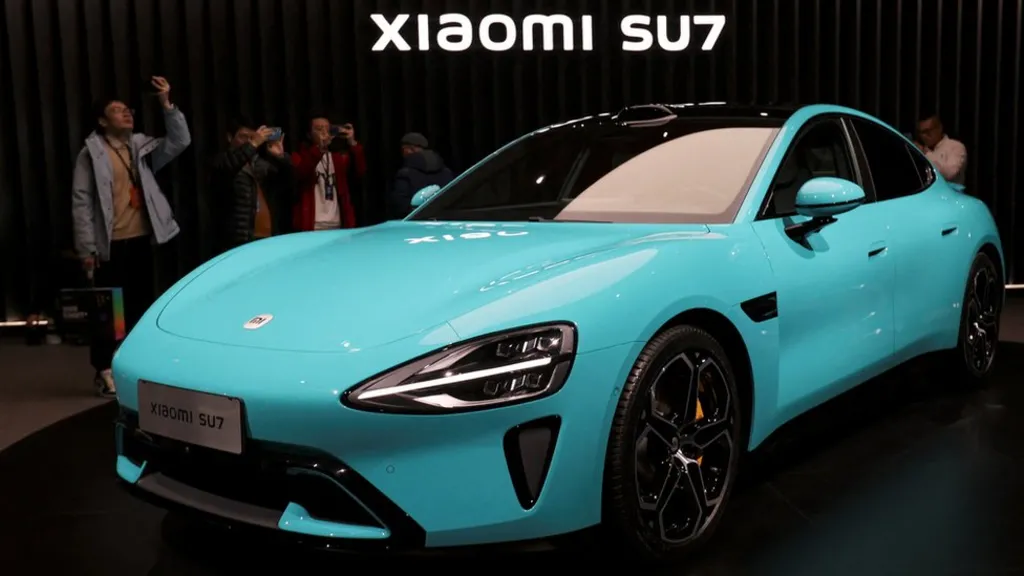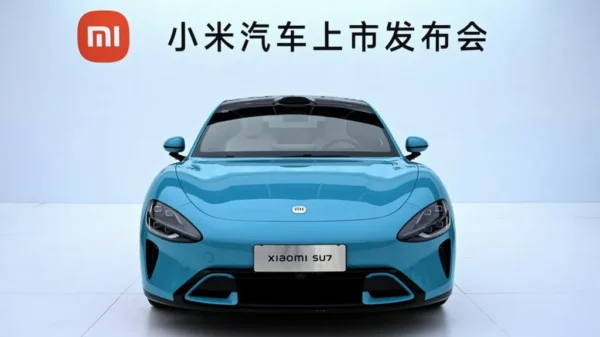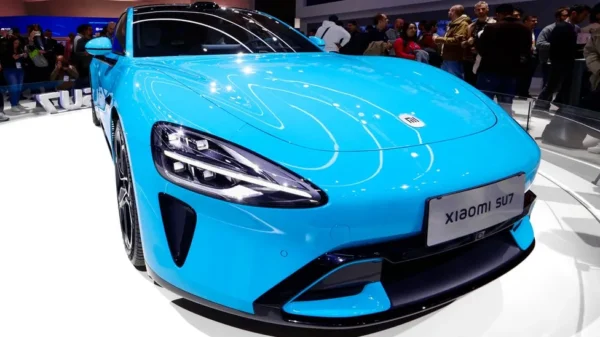Xiaomi Electric Car: Expect a Six-Month Waiting Period
Just shortly after the debut of Xiaomi’s inaugural electric vehicle (EV), potential buyers are facing a prolonged waiting period of up to six months before they can take delivery of their cars. Screenshots circulating on Chinese social media platforms depict the company informing customers that the SU7 Max could require 27 weeks for delivery. This revelation follows Xiaomi’s earlier announcement that pre-orders had surged to 88,898 within just 24 hours of opening orders on Thursday. Despite repeated attempts by the BBC to seek clarification, Xiaomi has yet to respond.
This tech behemoth, renowned as the third-largest smartphone vendor globally with a sizable market share of approximately 12%, has now set its sights on challenging established EV competitors like Tesla and BYD within the world’s largest automobile market. Priced at 215,900 yuan ($29,872; £23,663) for the standard model and 299,900 yuan for the Max variant, Xiaomi’s SU7 faces off against Tesla’s Model 3, which starts at 245,900 yuan in China.
Drawing comparisons to Porsche’s Taycan and Panamera models, the SU7 boasts a minimum range of 700km (435 miles), outperforming the Tesla Model 3’s 567km range. Xiaomi has also rolled out special editions of the car, dubbed the Founder’s Edition, offering complimentary gifts like fridges to entice buyers. In a recent Weibo post, Xiaomi’s CEO Lei Jun announced a second round of sales for the Founder’s Edition, underscoring the company’s efforts to leverage its existing customer base by offering an integrated operating system across its smartphones, laptops, and other devices.
Manufactured by a subsidiary of state-owned carmaker BAIC Group at a Beijing plant with a capacity of up to 200,000 vehicles annually, Xiaomi’s foray into EVs comes amid a global slowdown in EV sales, sparking a price war. As Tesla slashed prices in China, local rivals like BYD followed suit, intensifying competition.
However, the road ahead for tech firms venturing into the EV sector is fraught with challenges. Apple reportedly abandoned plans to manufacture an EV, while Nio, a Shanghai-based EV manufacturer, revised down its first-quarter delivery projections amidst weakening consumer spending in China’s slowing economy.
Against this backdrop, all eyes are on Tesla as it prepares to disclose its first-quarter delivery figures for 2024. With Tesla’s shares declining nearly 30% in the first quarter, Xiaomi remains undeterred, pledging a $10 billion investment in its vehicle business over the next decade.








































Comment Template